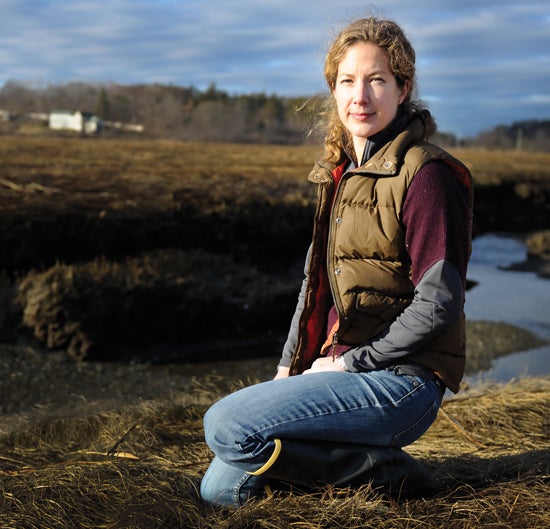Robinson Fulweiler M.S. ’03, Ph.D. ’07

Sea Star
Robinson “Wally” Fulweiler can tell you about double-edged swords. “About 50 percent of us are alive because of the nitrogen in fertilizer that helps grow our food,” she says. “But this also means that we’ve introduced large amounts of nitrogen into our coastal waters. Like anything, too much causes a series of negative consequences.”
Fulweiler has devoted much of the past 15 years to studying those consequences, specifically how our use of nitrogen—in fertilizers, for example—can cause harmful conditions, such as toxic algal blooms or ocean dead zones. “Our coastal ecosystems are important because they provide services we care about, such as filtering nutrients or providing habitats for fish,” she says. “When we disturb those ecosystems, we lessen their ability to provide all the services we rely on for economic, nutritional, and recreational benefits.”
Fulweiler, an associate professor at Boston University and current Bullard Fellow at Harvard Forest, was honored as a “Rising Star” at the URI Distinguished Achievement Awards in October in recognition of her work, which has played a vital role in better understanding human impact on oceans—and how we can protect against further damage. “I’m an optimist,” she says. “I absolutely think our everyday actions make a real-world difference. If we demand alternate energy sources or consume less meat, we will help drive the economy toward those options.”
She adds, “I think we forget how powerful each of us can be. It’s like that quote from the Dalai Lama XIV: ‘If you think you are too small to make a difference, try sleeping with a mosquito.’”
By Nicole Maranhas
 Home
Home Browse
Browse Close
Close Events
Events Maps
Maps Email
Email Brightspace
Brightspace eCampus
eCampus


